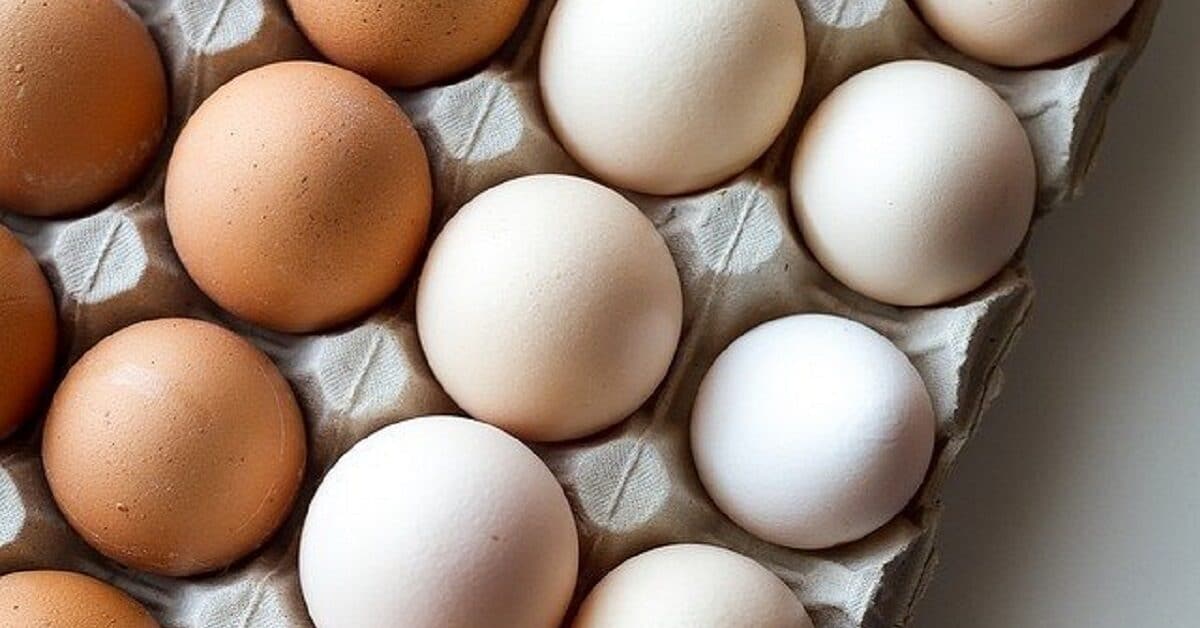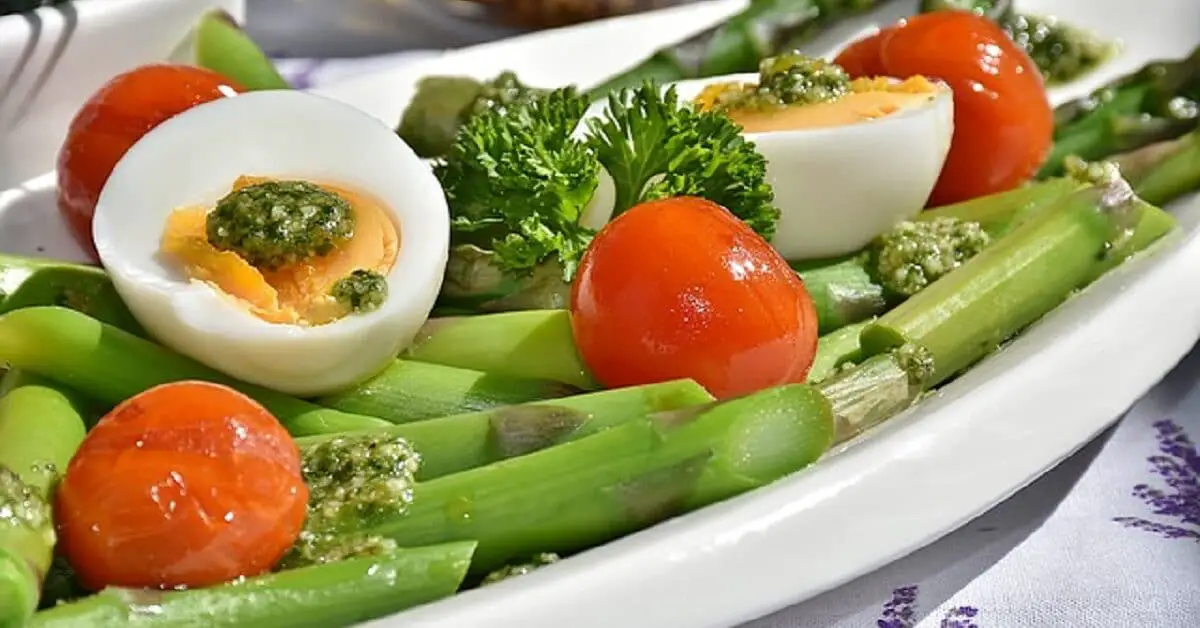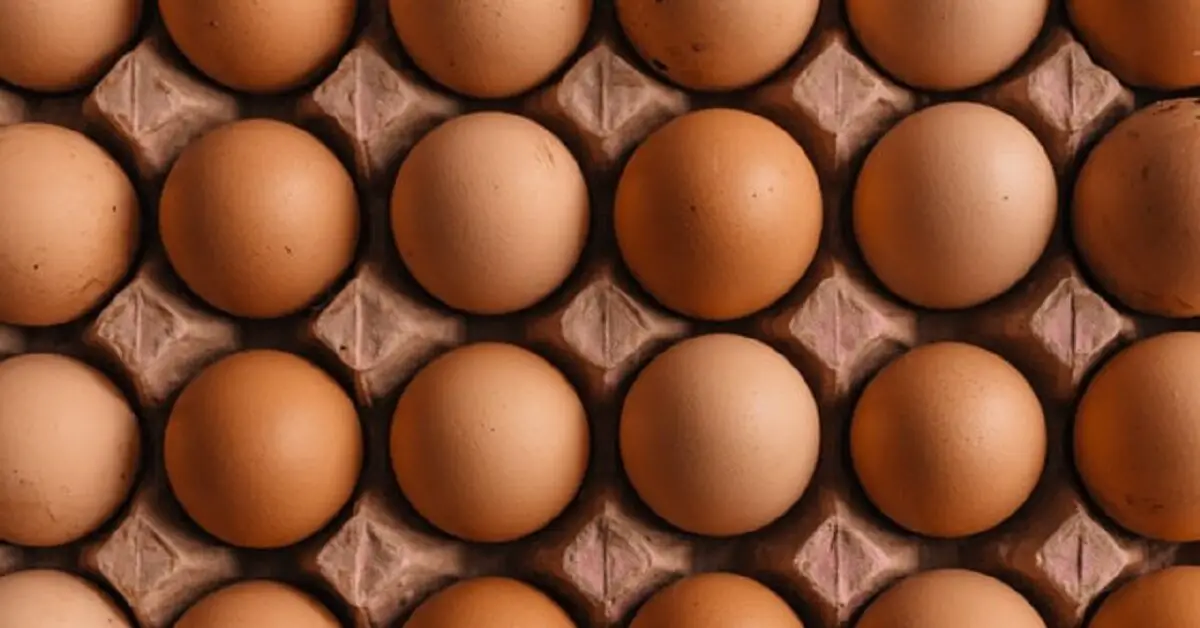
This article answers all your questions about how many calories are in an egg. We cover everything you need to know about the average calorie contents of different egg weight classes, including peewee, small, medium, large, extra-large, and jumbo.
We also give you a detailed breakdown of the nutrition facts for a large egg, including Percent Daily Values (%DV) based on the latest Daily Value (DV) update by the FDA.
Eggs are among the most nutrient-dense foods you can get. They have zero carbs but supply high-quality protein, vitamins, minerals, antioxidants, healthy monounsaturated (MUFAs), and polyunsaturated fats (PUFAs).
They are also high in calories. An egg or two a day contribute a modest amount to your daily calories. Exactly how many calories are in an egg depends on multiple factors, including the grade, weight, and how it was prepared for eating.
Eggs may be prepared in many ways, including boiling, scrambling, frying, and poaching. Cooking in fat (frying and scrambling) significantly increases the calorie content.
You may also serve eggs with various foods, including bread, fruits salads, fruit juices (such as apple juice), vegetable salads, pizzas, and pastas.
Contents:
Egg weight classes: Peewee, small, medium, large, x-large, jumbo

We previously answered all your questions about how many calories are in a banana. In this article, we shall focus on how many calories are in raw, hard-boiled, and fried eggs in different weight classes.
Size or weight is one of the factors that determines the calories an egg contains.
According to the USDA-issued AMS 56 guidelines (July 2000), shell eggs may be grouped into six weight classes shown below:
Minimum net weight of shell eggs per dozen
- Peewee: 15 oz (1.25 oz or 35.4g per egg)
- Small: 18 oz (1.50 oz or 42.5g per egg)
- Medium: 21 oz (1.75 oz or 49.6g per egg)
- Large: 24 oz (2.00 oz or 56.7g per egg)
- Extra Large: 27 oz (2.25 oz or 63.8g per egg)
- Jumbo: 30 oz (2.50 oz or 70.9g per egg)
How many calories in an egg?

Here is a summary of calories in eggs with different weights based on how they were prepared for eating. You may follow the clickable subheadings if you are interested in the details of how we calculated the values.
Calories in a large egg
- Large raw: 74.18 calories
- Large hard-boiled: 78.21 calories
- Large fried: 90.98 calories
Calories in a pewee egg
- Peewee raw: 46.32 calories
- Peewee hard-boiled: 48.84 calories
- Peewee fried: 56.82 calories
Small egg
- Small raw: 55.61 cal
- Small hard-boiled: 58.64 cal
- Small fried: 68.21 cal
Medium-sized egg
- Medium-sized raw: 64.89 cal
- Medium-sized hard-boiled: 68.42 cal
- Medium-sized fried: 79.60 cal
Extra-large egg
- Extra-large raw: 83.47 cal
- Extra-large hard-boiled: 88.01 cal
- Extra-large fried: 102.39 cal
Jumbo egg
- Jumbo raw: 92.76 cal
- Jumbo hard-boiled: 97.81 cal
- Jumbo fried: 113.78 cal
[Note: Calorie contents listed below are calculated using data from USDA’s FoodData Central. The egg weight classes are based on USDA-issued guidelines. Calculated nutrition facts are only rough estimates that rely on the results of previous analyses. The best way to determine the nutrient content of any food sample is through laboratory analysis.]
We start with calories in a large egg because food recipes are based on this weight class. Nutrition facts are also based on a large egg as the standard serving size.
Large hard-boiled egg: nutrition facts

The nutrition facts for a large hard-boiled egg weighing (without shell) 50.0g are listed below. Food recipes and nutrition facts are based on a large egg as the standard serving size.
The data shows that eggs are richest in cholesterol, protein, vitamin A, vitamin B12, selenium, riboflavin, pantothenic acid, riboflavin, and choline. They also contain significant total lipids, saturated fats, iron, phosphorus, zinc, B6, and folate.
[Note: The %DV (Percent daily value) values listed below are based on a daily intake of 2000 calories. The Daily Values (DVs) are based on FDA’s latest updates.]
- Water: 37.3g
- Energy: 77.5 calories (3.875%DV) (DV=2000 calories)
- Protein: 6.3g (12.6%DV) (DV=50g)
- Total lipids (fat): 5.3g (6.79%DV) (DV=78g)
Minerals:
- Calcium, Ca: 25mg (2.5 %DV)(DV=1300mg)
- Iron, Fe: 0.595mg (3.31%DV)(DV=18mg)
- Magnesium, Mg: 5mg (1.19 %DV) (DV=420mg)
- Phosphorus, P: 86mg (6.88 %DV) (DV=1250mg)
- Potassium, K: 63mg (1.34 %DV) (DV=4700mg)
Trace minerals:
- Zinc, Zn: 0.525mg (4.7%DV) (DV=11mg)
- Copper, Cu: 0.006mg (0.67%DV) (DV=0.9mg)
- Manganese, Mn: 0.013mg (0.57 %DV) (DV=2.3mg)
- Selenium, Se: 15.4mcg (28%DV) (DV=55mcg)
Vitamins:
- Thiamin: 0.033mg (2.75%DV) (DV=1.2mg)
- Riboflavin: 0.257mg (19.8%DV) (DV=1.3mg)
- Niacin: 0.032mg (0.2%DV) (DV=16mg)
- Pantothenic acid: 0.7mg (14%DV)(DV=5mg)
- Vitamin B6: 0.06mg (3.53%DV) (DV=1.7mg)
- Folate, total: 22mcg (5.5%DV) (DV=400mcg)
- Choline, total: 147mg (DV=26.72%DV) (DV=550mg)
- Vitamin B12: 0.555mcg (23.13%DV) (DV=2.4mcg)
- Vitamin A, IU: 260IU (32.5%DV) (DV=800 IU)
- Vitamin E (alpha-tocopherol): 0.515mg (3.43%DV) (DV=15mg)
- Vitamin D (D2 + D3): 43.5IU (5.45%DV) (DV=800 IU)
Fatty acids:
- Fatty acids, total saturated: 1.64g (8.2%DV) (DV=20g)
- Fatty acids, total monounsaturated: 2.04g
- Fatty acids, total polyunsaturated: 0.705g
- Cholesterol: 186mg (62%DV) (DV=300mg)
- PUFA n-3 (EPA): 0.003g
- PUFA n-3 (DHA): 0.019g
Source: USDA
Eggs are exceptionally rich in cholesterol. Many people avoided eggs due to concerns that the high cholesterol content may increase their risk of heart diseases. Researchers linked high blood cholesterol (hypercholesterolemia) with increased deposition of fatty plaques in the blood vessels that may cause coronary heart disease and stroke.
However, recent research suggests that a moderate cholesterol intake does not significantly increase blood levels in most healthy people. A high intake of certain types of saturated fats and trans fats, rather than cholesterol, may increase the risk of heart disease.
However, experts still advise eating only an egg or two a day to reduce heart disease risk. People at a high risk of coronary heart disease may exclude eggs from their diet.
1. Calculations: How many calories in a large egg?

Large raw eggs
A large raw shell egg weighs 56.7g (see weight classes data above). The chicken eggshell contributes about 11% of the total weight of an average egg. Therefore, a large raw egg without a shell weighs about 50.46g.
Based on USDA nutrition facts, 100g of raw eggs (without shell) contain 147 kilocalories (or calories). The calorie contents of raw eggs with comparable quality vary in proportion with size. Thus, a large raw weighing 50.46g contains approximately 74.18 kilocalories (note that food labels use “calories” interchangeably with kilocalories, thus a kilocalorie is equivalent to a calorie listed on a food label).
Large hard-boiled
According to USDA FoodData Central,100g of hard-boiled eggs contain 155 cals.
Thus, a large hard-boiled egg (without shell) weighing 50.46g (hard-boiling does not significantly add to its weight) contains approximately 78.21 cals.
Large fried
USDA lists the weight of a large fried egg as 46g, 8% less than the weight of a large, raw, fresh, whole egg listed as 50g. This is because frying decreases the weight of an egg due to water loss. We actually weighed eggs before and after frying to confirm USDA’s data and found that they lost 8%-8.5% of their weight.
Thus, a large raw weighing 50.46g weighs about 46.42g after frying (assuming an 8% weight loss).
According to the USDA nutrient database, 100g of fried eggs contain 196 cals. Thus, a large fried weighing 46.42g contains 90.98 cals.
A large fried thus contains significantly more calories than raw and hardboiled ones. Foods cooked in fats have high calorie contents because fats are calorie-dense. A gram of fat yields about 9 calories.
So, if you are trying to lose weight, you may want to avoid eating fried eggs.
2. How many calories are in a pewee egg?

Pewee raw
A peewee raw shell egg (extra small shell egg) weighs approximately 35.4g (see egg weight classes data above). The shell represents about 11% of the weight of a shell egg. Thus, a raw peewee without a shell weighs about 31.51g.
100g of raw eggs contain 147 kilocalories (calories), according to the USDA nutrition facts database. Thus, a raw peewee weighing 31.51g contains approximately 46.32 cals.
Pewee hard-boiled
100g of hard-boiled eggs contain 155 calories, according to USDA. A peewee hard-boiled weighing approximately 31.51g thus contains about 48.84 cals.
Peewee fried
A peewee fried egg weighs 28.99g, or 8% less than a raw pewee weighing 31.51g (refer to large fried egg subsection for a detailed explanation).
According to USDA, 100g of fried eggs contain 196 calories. Thus, a fried peewee weighing 28.99g contains approximately 56.82 cals.
3. How many calories are in a small egg?

Small raw
A small raw shell egg weighs about 42.50g (see weight classes data above). A small raw without a shell weighs 37.83g (11% less than a shell egg).
A small raw weighing 37.83g contains approximately 55.61 kilocals (or cals), based on USDA data.
Small hard-boiled
100g of hard-boiled eggs contain 155 calories, according to USDA. Thus, a small hard-boiled weighing 37.83g contains 58.64 cals.
Small fried
A small fried egg weighs approximately 8% less than the raw egg due to water loss (see detailed explanation here). Thus, a small raw weighing 37.83g weighs about 34.80g after frying.
100g of fried eggs contain 196 calories (according to USDA nutrition facts data). Thus, 34.80g contains 68.21 cals.
A small fried contains significantly more calories than a small hard-boiled. Therefore, you may need to cut down on fried eggs if you are watching your calories.
4. Calories in a medium-sized egg

Medium-sized raw
A medium-sized raw shell egg weighs about 49.6g (see weight classes data above). A medium raw egg without a shell weighs 44.14g (shells contribute about 11% to total egg weight).
100g of raw eggs contain 147 calories, according to USDA nutrition facts data. Thus, a medium-sized raw weighing 44.14g contains approximately 64.89 cals.
Medium-sized hard-boiled
100g of hard-boiled eggs contain 155 calories, according to USDA. Thus, a medium-sized hard-boiled (without a shell) weighing 44.14g contains approximately 68.42 cals.
Medium-sized fried
A medium-sized egg weighing 44.14g loses about 8% of its weight when fried (see explanation here). Thus, a medium-sized fried weighs about 40.61g.
100g of fried eggs contain 196 calories (according to USDA data). Thus, a medium-sized fried weighing 40.61g contains approximately 79.60 cals.
5. Calories in an extra-large egg

Extra-large raw
An extra-large raw shell egg weighs about 63.8g (see weight classes data above). An extra-large raw egg without a shell weighs about 56.78g (11% less than a shell egg).
100g of raw eggs contain 147 calories, according to USDA. Thus, an extra-large raw weighing 56.78g contains approximately 83.47 cals.
Extra-large hard-boiled
A hard-boiled egg weighing 56.78g contains approximately 88.01 calories (100g of hard-boiled eggs contain 155 cals, according to USDA).
Extra-large fried
An extra-large fried egg weighs approximately 8% less than an extra-large raw due to water loss during frying. Thus, an extra-large fried weighs about 52.24g (8% less than 56.78g)
100g of fried eggs contain 196 calories (according to USDA), thus 52.24g contains 102.39 cals.
6. Calories in a jumbo egg

Jumbo raw
A jumbo raw shell egg weighs about 70.90g (see weight classes data). A jumbo without a shell weighs about 63.10g, 11% less than the shell egg.
According to USDA data, 100g of raw eggs contain 147 cals. Thus, 63.10g contains 92.76 cals.
Jumbo hard-boiled
A jumbo hard-boiled egg weighing approximately 63.10g contains about 97.81 cals (100g of hard-boiled contain 155 calories, according to USDA).
Jumbo fried
A jumbo egg loses about 8% of its weight during frying. Thus, a jumbo raw weighing 63.10g weighs about 58.05g after frying.
USDA data says that 100g of fried eggs contain 196 calories. Thus, 58.05g contains 113.78 cals.

